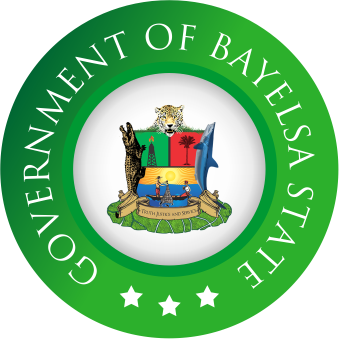
A State is as good as the healthcare it enables.
Bayelsa State is in the Southern part of Nigeria with a total area of 10,773 km². According to the 2016 census statistics, Bayelsa State has a total population of 2.28 million people.
The total fertility rate of the State is 4.8 and that of the adolescents is higher at 6.2. The crude death rate of the state is 206 deaths per 1,000 live births and has a life expectancy of 54.4 years. The rate of nutritional deficiency among children below five years in Bayelsa is below the acceptable rate of 5 per cent. The prevalence of exclusive breastfeeding for a period of up to 120 days of age is only 26.9 per cent.
The state has been on the rise in the number of reported cases of preventable diseases, particularly by vaccination, including measles. The annual incidence of HIV/AIDS in Bayelsa State is higher than that of the federal nation and is at 1.8 per cent. Causes of infant deaths entail preterm deaths, which make the largest contribution to neonatal deaths at 31 per cent and closely followed by asphyxia at 27 per cent.
Various neonatal infections such as ARI come third, contributing 20 per cent while diarrhoea, which includes ADD stands at five per cent of these deaths. The health determinants of the state include social, political, environmental and economic factors. In terms of the healthcare infrastructure, there is a need to improve both the facilities teaching healthcare and directly providing the care. Moreover, there a huge gap in the technology and equipment provided, with most of these failing to function properly.
There is a deficiency of the qualified personnel, including doctors, nurses and pharmacist, and none of the categories meets the recommended guideline by the WHO. As such, the quality of healthcare in Bayelsa State can be improved by having streamlined fund sources, which can be increased by investors participation.

